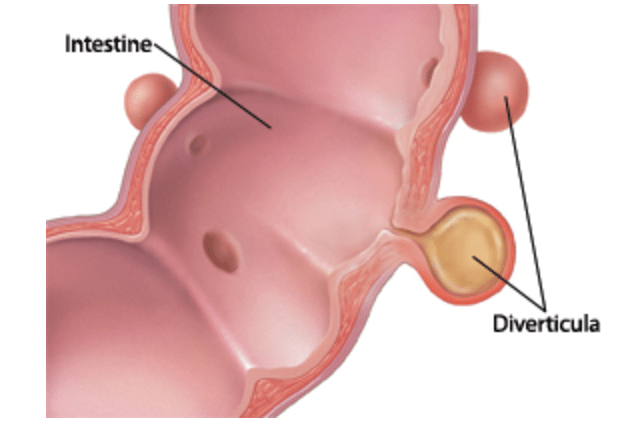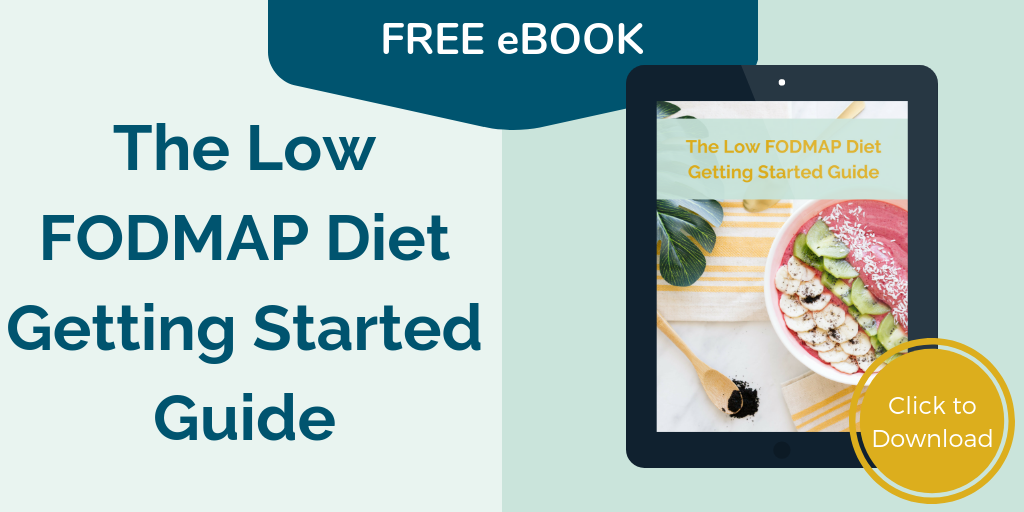Low FODMAP Diet & Digestive Health News
With the public’s growing concern for eating healthy and more awareness about Irritable Bowel Syndrome (IBS), we are seeing a greater focus on digestive health. Amidst the publishing of new research and the release of new products targeted at improving digestive health, it can be difficult to keep up-to-date. Here are this week’s highlights.
MONASH UNIVERSITY UPDATES
Monash University is regularly adding new food items to the app and certifying newly released Low FODMAP products. With constant changes it can be difficult to keep up, but our team is working hard to highlight the latest updates to the app as they happen so you can continue eating well for your health and your gut, without all the confusion and guesswork.
If you are following the Low FODMAP diet and haven’t already downloaded the app, we recommend you do. This is the best tool to provide you with an up-to-date list of low, moderate, and high FODMAP foods. New foods are regularly added in addition to updates for existing items based on the latest testing and research.
Getting Enough Calcium on the Low FODMAP Diet
Monash recently released some helpful tips on meeting your calcium needs while on the Low FODMAP diet. Whether you are in the elimination phase of the Low FODMAP diet or you are lactose intolerant, these easy tips will help you meet your calcium needs when you’re avoiding dairy.
Why is Calcium Important?
Many of us associate calcium with bone health, but it is also important to proper muscle function and helps transmit messages to your brain.
Foods that Contain Calcium
In addition to dairy products, calcium is found in non-dairy beverages, such as, soy or rice milk that have been fortified. Some less familiar sources of calcium include foods like, navy beans, sardines, spinach, sesame seeds, and kale.
3 Tips for Meeting Your Calcium Needs on the Low FODMAP Diet
- Eat hard cheeses like cheddar or parmesan
- Use non-dairy milks like almond or rice milk that are fortified with calcium
- Add plain, firm tofu to your diet (look for tofu that has been set in calcium)
MEDIA UPDATES
Low FODMAP Diet Relieves IBS
The Washington Post wrote a great overview about the Low FODMAP diet this week in their Wellness Section. The article stresses that the Low FODMAP diet is a “learning diet” that helps identify which foods trigger symptoms. Reviewing the list of foods that are high in FODMAPs you’ll see healthy foods, such as, black beans, artichokes and apples. The objective of the Low FODMAP diet is not to avoid all high FODMAP foods, but to limit the ones that irritate your gut. Due to the complexity of the Low FODMAP diet it is recommended that individuals with IBS work with a dietitian. The symptoms that someone with IBS may experience are likely to change over time. This factor along with the restrictive nature of the Low FODMAP diet means that this dietary intervention is best implemented alongside a healthcare professional.
Many individuals starting on the Low FODMAP diet are tempted to stay on the diet indefinitely once they experience symptom relief. Registered dietitian Kate Scarlata usually finds that most people “will identify 5 to 10 trigger foods on average. Some [people] learn that they have no one specific trigger food, but rather they exacerbate their IBS symptoms when they consume too many FODMAP-containing foods at one meal”.
And it’s why I created the Low FODMAP Diet Getting Started Guide. It’s a short eBook that will help you better understand the Low FODMAP diet so you know what you need to know about FODMAPs and if this diet is right for you. Click here to get a copy emailed to you now.
Microbiome and IBS
A pharmaceutical company, 4D Pharma PLC, is developing live biotherapeutics called Blautix, that alter the gut microbiome. What are biotherapeutics? Biotherapeutics refers to the engineering of bacteria, fungi, yeast or cells to treat disease or illness. Changes to the gut bacteria is often a feature of IBS and places people at risk of acquiring other illnesses seeing as a large portion of our immune system resides in our gut. Those living with IBS may have decreased bacteria or less diversity of bacteria in their gut which is necessary for a healthy digestive system. 4D Pharma is in the midst of clinical trials, but has so far found that individuals taking Blautix had greater symptom relief and more diverse gut bacteria compared to the placebo group. This is promising news and we look forward to see what the next round of clinical trials reveal.
Reducing Holiday Flare-ups with the Low FODMAP Diet
The holidays are a stressful period for most people, but especially so for those with IBS. Many of our social gatherings around the holiday season involve indulgent meals, eating in excess, and consuming alcohol, all of which can trigger symptoms. So what should you do?
Dr. Ayesha Akbar, a gastroenterologist, shares five tips to help keep your symptoms at bay and enjoy the holidays with your loved ones.
- Avoid trigger foods
- Limit foods and drinks associated with bloating, such as carbonated drinks
- Try not to eat too late into the evening
- Drink plenty of water, especially if consuming alcohol
- Listen to your body and stop eating once you feel full
What Do Your Symptoms Mean?
The Weekly Challenger asked gastroenterologist Robynne Chutkan about common digestive issues and how you should address them. Dr. Chutkan highlights major symptoms of Crohn’s disease, ulcerative colitis, lactose intolerance, celiac and SIBO. She recommends that mild cases of IBD can be improved by lifestyle changes like the Low FODMAP diet and stress reduction. For IBS, she suggests the Low FODMAP diet along with exercise. Hearing medical professionals endorse lifestyle changes for symptom management is definitely encouraging, as more people are looking for a holistic approach to dealing with their health.
Increase in Low FODMAP Diet Awareness
Nutrition Insight recently wrote a piece about the rise in awareness about IBS and the Low FODMAP diet. They spoke with industry insiders to learn what the upcoming year has in store for those following the Low FODMAP diet.
Tim Mottin, the Director of FODMAP Friendly, revealed that “up to 80 percent of [those with IBS] are undiagnosed”. Openly discussing digestive health decreases the stigma around living with IBS and motivates those with IBS to demand more products and services that cater to their needs.
The food industry has an important role to play not only in developing products, but educating the public. Registered dietitian Julie Thompson noted that the food industry could help with the public’s understanding of the Low FODMAP diet, especially since the word “diet” is associated with weight loss. Food companies will need to stress that the Low FODMAP diet isn’t a fad diet or weight loss plan, but a solution for digestive health issues.
Within the past , Low FODMAP products have increased by 35 percent in the United States. With this increase in product development and awareness there will likely be products that cater to people at various stages of the Low FODMAP diet.
Certification programs such as FODMAP Friendly and Monash Low FODMAP play a big role in identifying Low FODMAP foods for consumers. These programs assure consumers that they are buying gut friendly products that have been tested in a lab and follow strict guidelines. With the growing number of products entering the market it can be overwhelming trying to figure out what works for you. Looking for these seals of approval definitely makes grocery shopping a little easier for Low FODMAPers everywhere!
RESEARCH UPDATES
Low FODMAP Diet to Prevent Diverticulitis
One of the most exciting developments in Low FODMAP research has been applications to other digestive health issues beyond IBS. Research published in the November issue of the World Journal of Gastrointestinal Pharmacology and Therapeutics investigates if the Low FODMAP diet could help with diverticulitis.
What is Diverticulitis?
Diverticulitis occurs when little pouches (diverticula) formed in the wall of the colon become inflamed. The inflamed pouches can cause pain or bowel obstruction. The causes of diverticulitis are unknown, but dietary changes are a component of symptom management. Doctors routinely recommend a high-fibre diet to decrease risk of diverticulitis. However, the evidence supporting this practice lacks strength. Scientists in Japan and the United States are hypothesizing that there might be a better approach.

Taken from: On Health
Low FODMAP Diet to Prevent Diverticulitis
Diverticulitis and IBS share similar symptoms including, abdominal pain, gas, and bloating. It is believed that excess intestinal pressure can increase the chances of pouches becoming inflamed. Yoshiharu Uno and Jennifer Velkinburg propose that the gas-reducing Low FODMAP diet may help prevent diverticulitis from developing. They believe that a high-fibre diet actually exacerbates symptoms in diverticulitis because of the increased gas that is produced from poorly digested carbohydrates. They propose that the increase in pressure caused by gas might contribute to the formation of these pouches. Uno and Velkinburg suggest that a Low FODMAP diet should be considered as a possible treatment option for those with diverticulitis.
Looking at previous research, they found that those with diverticulitis are more likely to be lactose intolerant. Lactose is one of the FODMAPs some people living with IBS have difficulty digesting. There was also a direct link between IBS and diverticulitis. Although they are different conditions, those with sudden onset of diverticulitis are more likely to develop IBS.
Hopefully the findings of this research will prompt further study on the link between diverticulitis, IBS and the Low FODMAP diet. It is likely that over the next few years we will see the Low FODMAP diet being used to prevent or treat other digestive disorders.
Written by Adi Hazlewood, News & Culture Editor
References
- Uno Y and van Velkinburgh JC. World Journal of Gastrointestinal Pharmacology and Therapeutics. 2016. Logical hypothesis: Low FODMAP diet to prevent diverticulitis.
- Monash University. 2016. Getting enough calcium on the Low FODMAP diet.
- Rosenbloom C. Washington Post. 2016. A diet that helps relieve irritable bowel suffers’ pain (finally).
- Arbor G. 2016. 4D pharma PLC clinical update very encouraging for future clinical development.
- Gardiner H. Nutrition Horizon. 2016. Special report: Low FODMAP: Exploring the latest free-from trend.
- Lerche O. Daily Express. 2016. Irritable bowel syndrome: How to avoid IBS flare ups at Christmas


